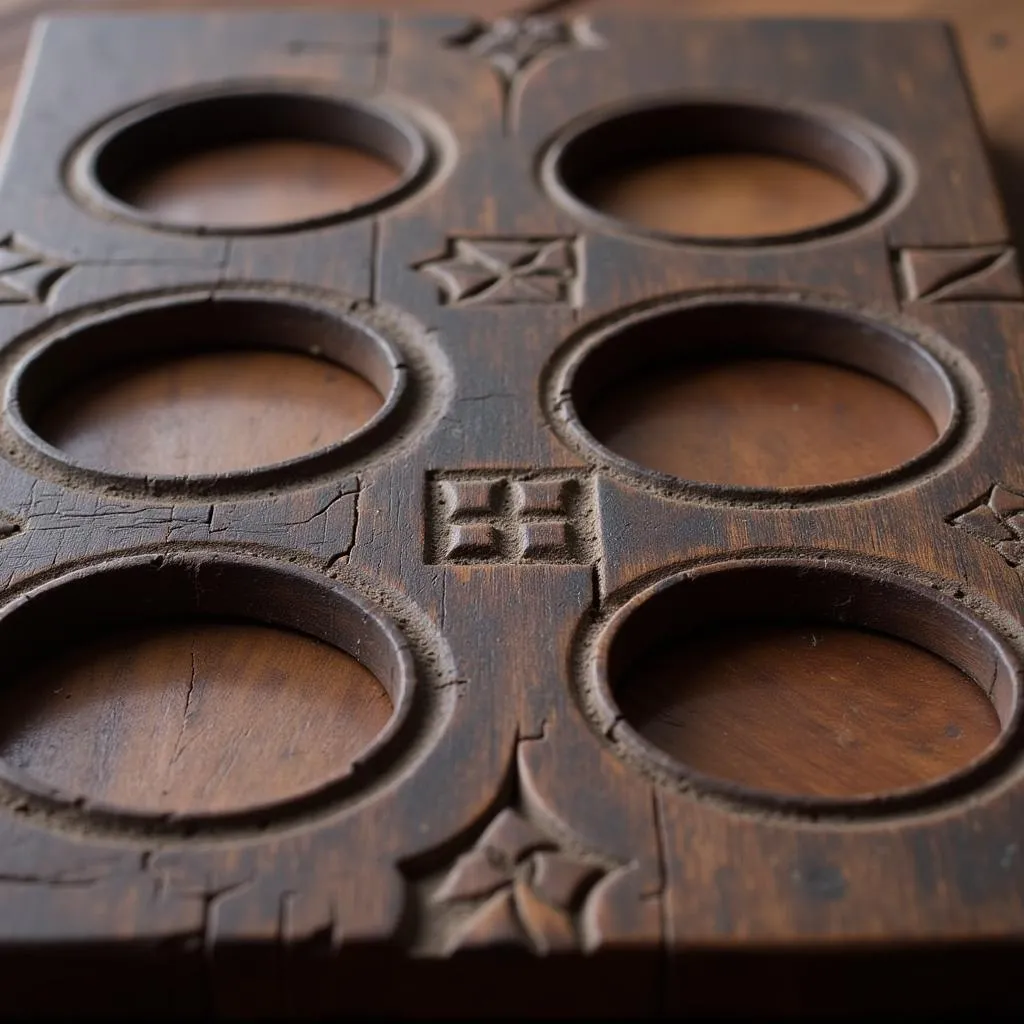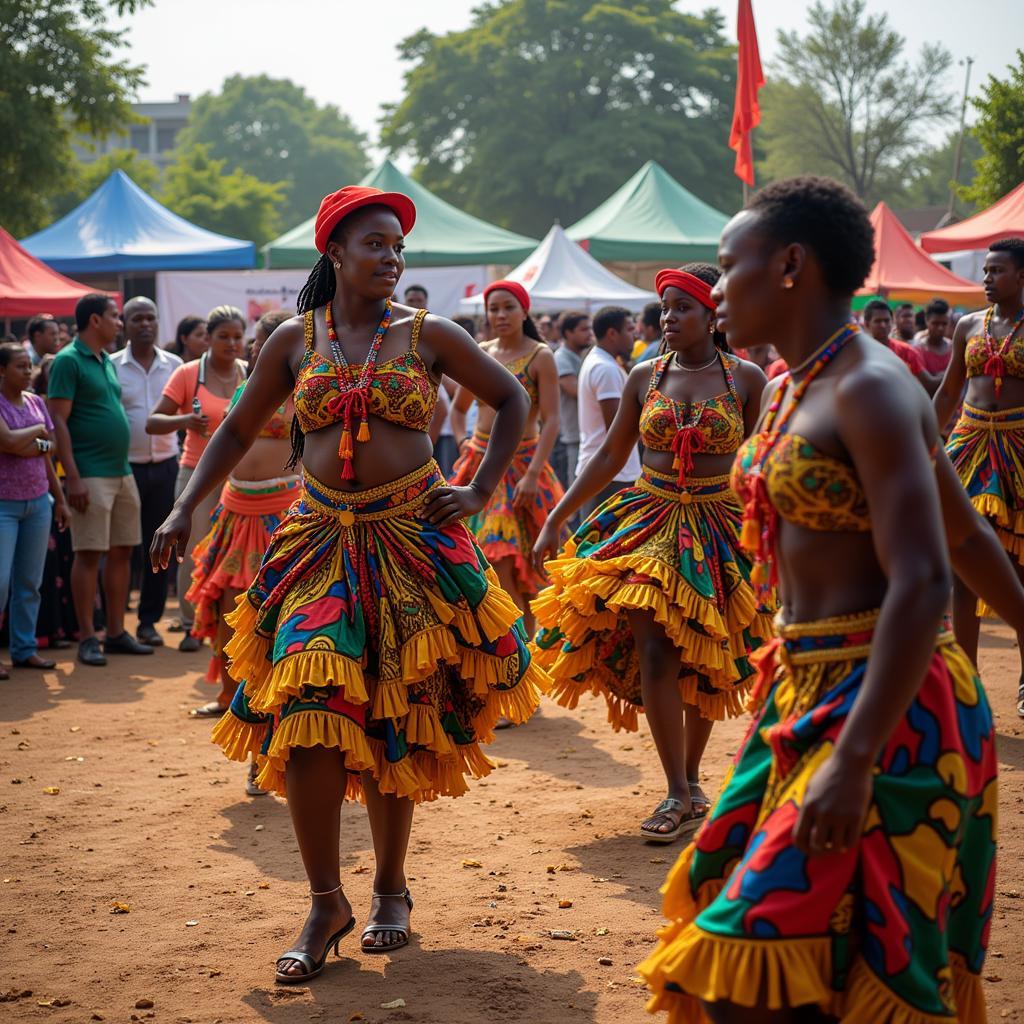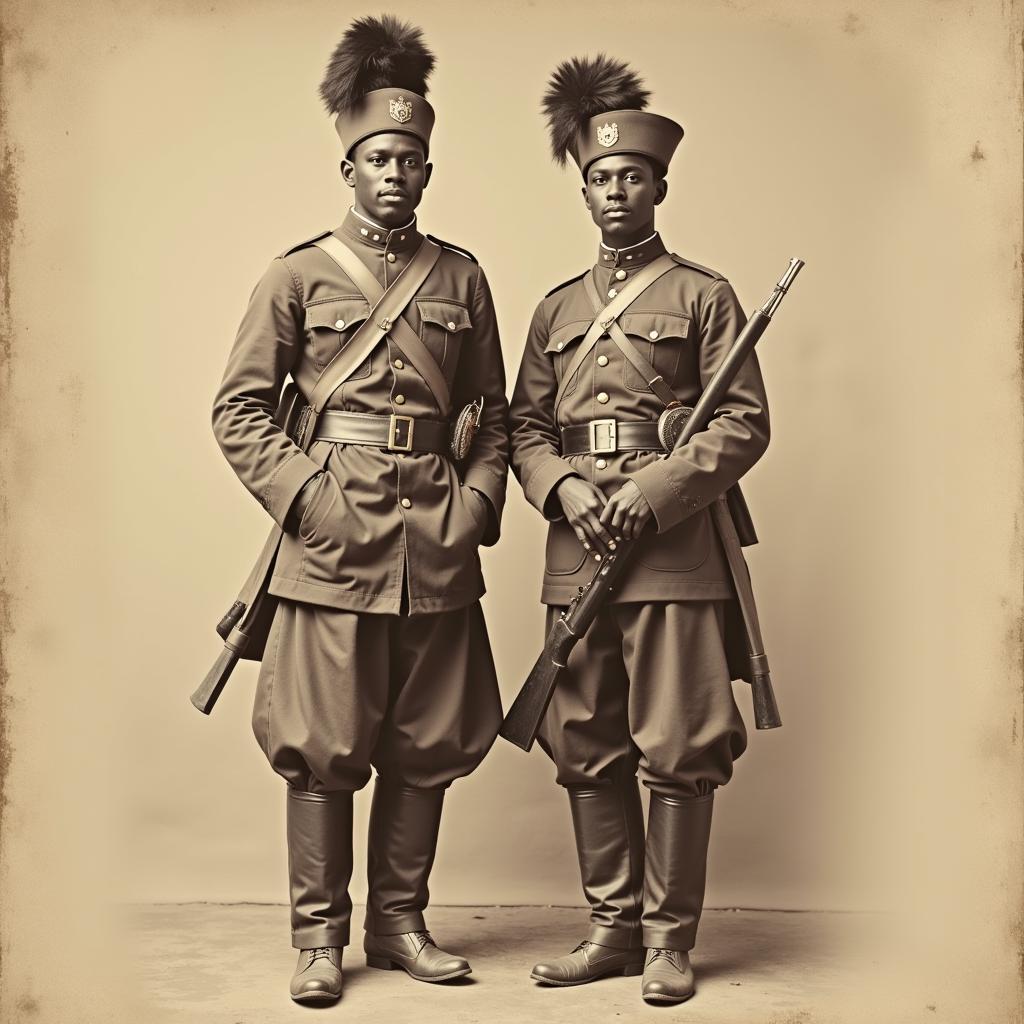Discovering the African Droba: An Intricate Game of Strategy and Skill
The African Droba, also known as “Dara” or “Derrah”, is far more than just a game. It’s a captivating journey into the heart of African culture, a testament to the continent’s rich history of strategic thinking and communal bonding. This ancient game of strategy, played with pebbles or seeds on a wooden board, offers a glimpse into the intellectual prowess and vibrant social customs of various African communities.
Unraveling the History of the Droba Game
The exact origins of Droba remain shrouded in the mists of time, much like many ancient traditions passed down through generations. However, evidence suggests that the game has graced the African continent for centuries, with roots potentially reaching back over a millennium. Some historians believe that Droba originated in the ancient Mande empire of Mali, while others trace its beginnings to other parts of West Africa. Regardless of its precise birthplace, Droba has woven itself into the cultural tapestry of numerous African nations, including Mali, Senegal, Nigeria, Burkina Faso, and beyond.
 Traditional African Droba board
Traditional African Droba board
Mastering the Rules: How to Play Droba
Droba, despite its ancient roots, boasts a surprisingly simple set of rules, making it easy to learn yet challenging to master. Two players engage in a battle of wits, each commanding twelve playing pieces, often small stones or seeds. The game unfolds on a rectangular wooden board adorned with two rows of six holes, representing the players’ territories.
The game commences with each player strategically placing their twelve pieces, one by one, into the holes on their side of the board. Once all pieces are deployed, the real strategic maneuvering begins. Players take turns moving a single piece at a time, shifting it to an adjacent empty hole. The ultimate objective? To capture your opponent’s pieces and leave them with less than six, declaring yourself the victor.
 Two individuals engrossed in a game of Droba
Two individuals engrossed in a game of Droba
Strategic Depth in Every Move
Don’t let the seemingly straightforward rules deceive you; Droba is a game of surprising depth and complexity. Beneath its simple exterior lies a world of intricate strategies and tactical possibilities. As the game progresses, players must think several moves ahead, anticipating their opponent’s actions while plotting their own path to victory.
Capturing techniques, known as “sowing” and “reaping,” add layers of complexity, demanding players to outmaneuver their opponents through clever positioning and calculated sacrifices. A single misstep can shift the tide of the game, transforming a seemingly secure position into a precarious one.
Beyond a Game: The Social Significance of Droba
Droba’s significance extends far beyond the boundaries of a simple board game. In many African societies, it serves as a powerful tool for fostering social interaction and transmitting cultural values across generations. Gathered around the Droba board, often beneath the shade of a sprawling tree, people of all ages engage in lively matches, accompanied by laughter, friendly banter, and the sharing of stories and wisdom.
 A group of people enjoying a game of Droba
A group of people enjoying a game of Droba
These gatherings transcend mere entertainment; they serve as informal classrooms where elders impart valuable life lessons to younger generations, using the game as a metaphor for strategic thinking, patience, and the consequences of one’s actions. Droba, in essence, becomes a vehicle for preserving cultural heritage and strengthening community bonds.
Conclusion: Embracing the Legacy of African Droba
The African Droba stands as a testament to the ingenuity and cultural richness of the continent. It is a game that transcends generations, captivating players with its strategic depth, fostering social connections, and preserving ancient traditions. As you engage in a match of Droba, remember that you are partaking in a legacy that stretches back centuries, a legacy that celebrates the power of strategic thinking, community, and the enduring spirit of Africa.



